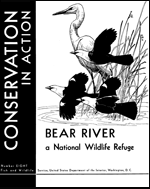United States Fish and Wildlife Service

United States Fish and Wildlife Service: Publications
Date of this Version
2008
Abstract
Fundamental changes in protected area outreach and education strategies are dissolving old boundaries and fostering innovative approaches to civic engagement. The practice of community-based ecosystem management as presented by Meffe et al. (2002) provides an organizing framework blending ecological, institutional and sociocultural perspectives. This framework flows from a definition of ecosystem management that considers sustaining ecosystem structure and processes across spatial and temporal scales in tandem with societal priorities. The decision-making authority in this system, envisioned as collaborative and participatory, can present challenges for traditionally trained protected area managers. This definition views ecosystem management as: . . . an approach to maintaining or restoring the composition, structure, and function of natural and modified ecosystems for the goal of long-term sustainability. It is based on a collaboratively developed vision of desired future conditions that integrates ecological, socioeconomic and institutional perspectives, applied within a geographic framework defined primarily by natural ecological boundaries (Meffe et al. 2002:70, emphasis added).


Comments
Published in Weber, Samantha, and David Harmon, eds. 2008. Rethinking Protected Areas in a Changing World: Proceedings of the 2007 GWS Biennial Conference on Parks, Protected Areas, and Cultural Sites. Hancock, Michigan: The George Wright Society.